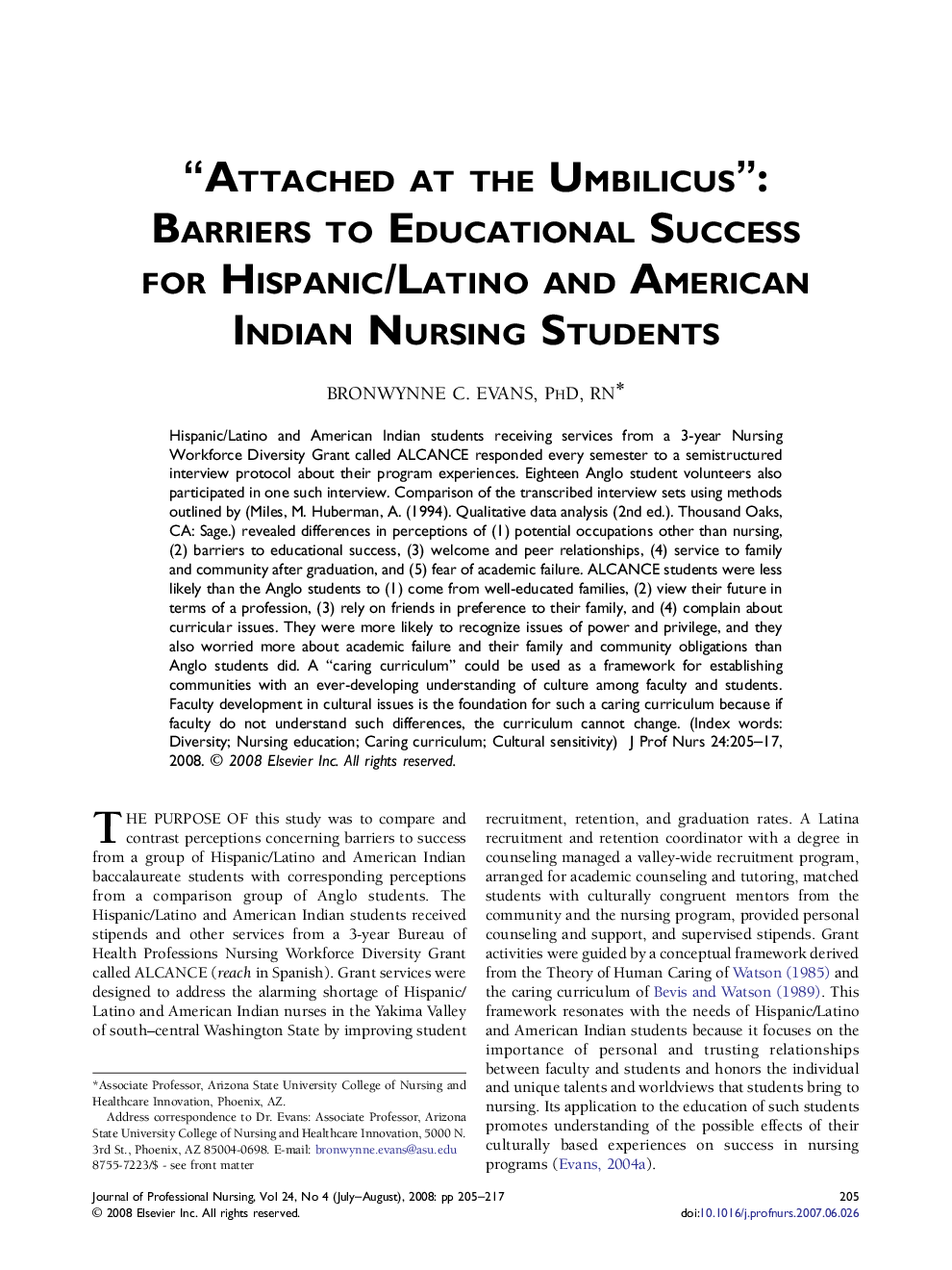| Article ID | Journal | Published Year | Pages | File Type |
|---|---|---|---|---|
| 2668841 | Journal of Professional Nursing | 2008 | 13 Pages |
Hispanic/Latino and American Indian students receiving services from a 3-year Nursing Workforce Diversity Grant called ALCANCE responded every semester to a semistructured interview protocol about their program experiences. Eighteen Anglo student volunteers also participated in one such interview. Comparison of the transcribed interview sets using methods outlined by (Miles, M. Huberman, A. (1994). Qualitative data analysis (2nd ed.). Thousand Oaks, CA: Sage.) revealed differences in perceptions of (1) potential occupations other than nursing, (2) barriers to educational success, (3) welcome and peer relationships, (4) service to family and community after graduation, and (5) fear of academic failure. ALCANCE students were less likely than the Anglo students to (1) come from well-educated families, (2) view their future in terms of a profession, (3) rely on friends in preference to their family, and (4) complain about curricular issues. They were more likely to recognize issues of power and privilege, and they also worried more about academic failure and their family and community obligations than Anglo students did. A “caring curriculum” could be used as a framework for establishing communities with an ever-developing understanding of culture among faculty and students. Faculty development in cultural issues is the foundation for such a caring curriculum because if faculty do not understand such differences, the curriculum cannot change.
